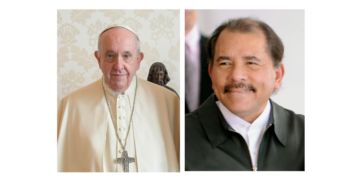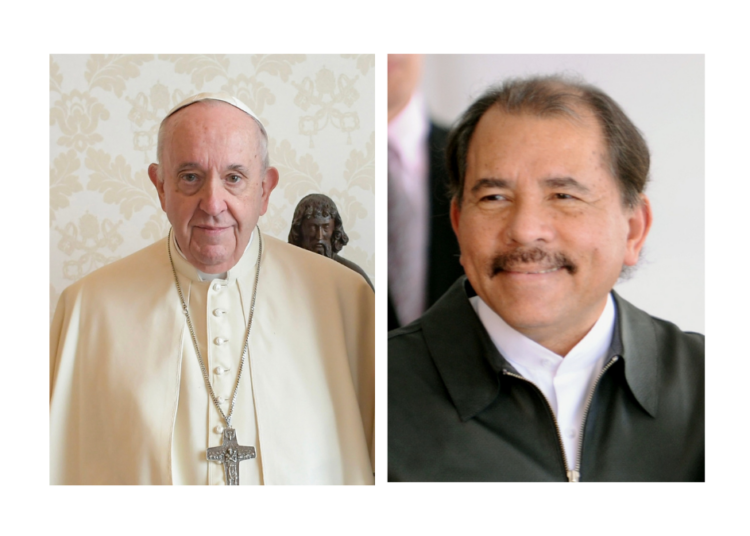In a new interview, Pope Francis harshly criticized Nicaraguan President Daniel Ortega, arguing that he must suffer from a personal “imbalance” and compared his regime to the “rough” dictatorships of the early 20th century. “With great respect, I can only think of an imbalance in the person leading,” Pope Francis said of Ortega in an interview with Infobae, published on 10 March. “It is something that is outside of what we are experiencing, it is like bringing the communist dictatorship of 1917 or the Hitler dictatorship of 1935, bringing them here. They are a crude kind of dictatorship,” he stressed.
The Pope also regretted that Bishop Rolando Álvarez of Matagalpa ended up “in prison,” and described him as a “very serious, very capable man” who “wanted to give his testimony and did not accept exile.” Monsignor Álvarez refused to leave Nicaragua along with 222 deported political prisoners on 9 February 2023. The next day, the dictatorship sentenced him to 26 years and 4 months in prison on charges of being a “traitor to the fatherland.”
We must remember that in the past few weeks Ortega’s violence against the Catholic Church has escalated. In fact, between 23 and 24 February, on Ash Wednesday, the Ortega government decided to ban the Processions of the Cross in the streets of the cities of the country: the Processions of the Cross may only take place inside or in the atrium of churches, at most and only with specific permits, the procession may go along the outside perimeter of the church, but in this case the safety of the faithful would not be guaranteed.
On 7 March, a new assault on the Church and Christian people took place with the closure of two universities linked to the Catholic Church, which were deprived of their legal status for “non-compliance” with laws. In the Official Gazette, the Ministry of the Interior published the cancellation of the legal status of John Paul II University, based in Managua and four other cities, and of Universidad Cristiana Autónoma de Nicaragua (UCAN), based in León and five other cities, due to “failure to comply with their obligations under the laws governing them.” On the same Tuesday, 7 March, the Nicaraguan regime approved the cancellation of the legal status of Caritas Nicaragua. Caritas was legally registered in the country in November 1994. Now Pope Francis takes to the field with the firmness needed to denounce a socialist and communist regime for being politically supported for far too long by many socialist governments including Western ones.




















Discussion about this post